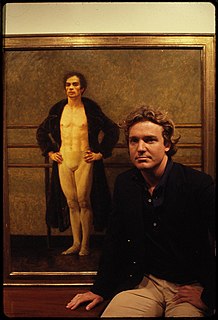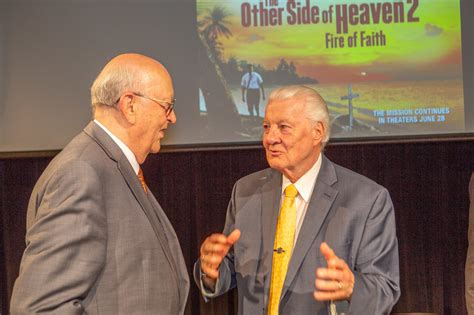A Quote by Mary Ellen Mark
In a portrait, you always leave part of yourself behind.
Related Quotes
I grew up in a very religious family, so that was never going to leave me. I just accepted it over the years. Although I'm not religious myself, it is so much a part of me. It's a part of my history, a part of my tradition and my culture, so I don't want to just throw it away and leave it behind, because it's made me who I am today.
We can leave a place behind, or we can stay in that place and leave our selfishness (often expressed in feeling sorry for ourselves) behind. If we leave a place and take our selfishness with us, the cycle of problems starts all over again no matter where we go. But if we leave our selfishness behind, no matter where we are, things start to improve.
One of the characteristics of North American culture is that you can always start again. You can always move forward, cross a border of a state or a city or a county, and move West, most of the time West. You leave behind guilt, past traditions, memories. You are as if born again, in the sense of the snake: You leave your skin behind and you begin again. For most people in the world, that is totally impossible.
Leaving love behind is never easy, for it also asks that we leave behind the part of ourselves that did the loving. And yet for all but the very fortunate and the very foolish, this difficult transition is an inevitable part of the human experience, of the ceaseless learning journey that is life - because, after all, anything worth pursuing is worth failing at, and fail we do as we pursue.




































